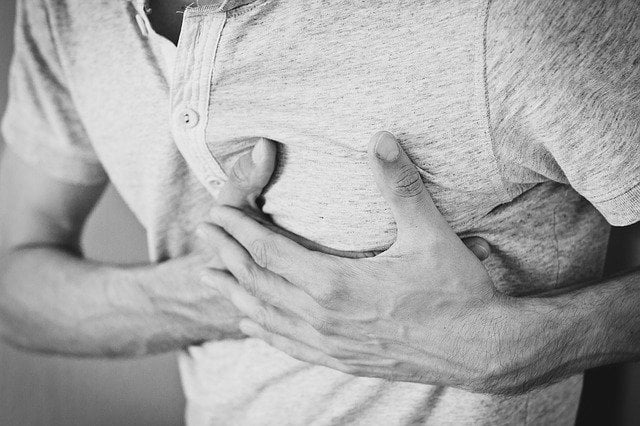Heart attack symptoms, risk factors

Heart attack symptoms, risk factors
A heart attack, also called a myocardial infarction, occurs when part of the heart muscle does not get enough blood. The more time passes without treatment to restore blood flow, the greater the damage to the heart muscle.
The main cause of heart attacks is coronary artery disease is the main cause of heart attacks or severe constriction of the coronary artery that can stop blood flow to the heart muscle. We must be aware of a heart attack and intervene quickly to prevent its damage.
What are the symptoms of a heart attack?
The main symptoms of a heart attack:
First: pain and discomfort in the chest:
Most heart attacks are a feeling of discomfort in the middle or left side of the chest that lasts for more than a few minutes or goes away and then comes back. The discomfort can be such as uncomfortable pressure, pressure, fullness, or pain.
Second: Feeling weak, dizzy or faint:
The patient may start to have symptoms of fatigue, and then it will be difficult for him to do daily activities in addition to dizziness. One of the characteristic symptoms of a heart attack is cold sweats in addition to the previous symptoms.
Third: Pain or discomfort in one arm, caffeine, or both:
It often occurs when a person has pain and discomfort on his left side. Either in one arm or shoulders and then extends to the other side.
Fourth: Pain or discomfort in the jaw, neck or back:
The symptoms of a heart attack are consistent with pain extending to the neck and jaw, and more distinctive in addition to arm and chest pain is pain in the back, especially between the shoulders, the pain is burning.
Fifthly, shortness of breath:
Shortness of breath occurs when having a heart attack, in addition to chest pain, then you cannot determine it with one finger. Because it includes the chest as a whole. In addition to the pain between the shoulders and left agriculture.
Other symptoms of a heart attack can include unusual or unexplained tiredness, nausea, or vomiting. And women are more likely to suffer from these symptoms in addition to other symptoms.
If you feel these symptoms, then you should call an ambulance immediately. Because the earlier you get to the emergency room during a heart attack, the less damage will be caused to the heart muscle.
In the hospital, electrocardiogram (ECG) tests are performed, in addition to blood tests. Then the doctor can diagnose the condition and write the appropriate treatment.
Some cases even require an electric shock, and then a heart attack may require CPR if the heart stops. To restart it and pump blood. We must pay attention to a heart attack and prevent it to reduce the damage caused by it to the heart.
Important note :
Hence, you must remember that the chances of surviving a heart attack are better the sooner emergency treatment begins.



